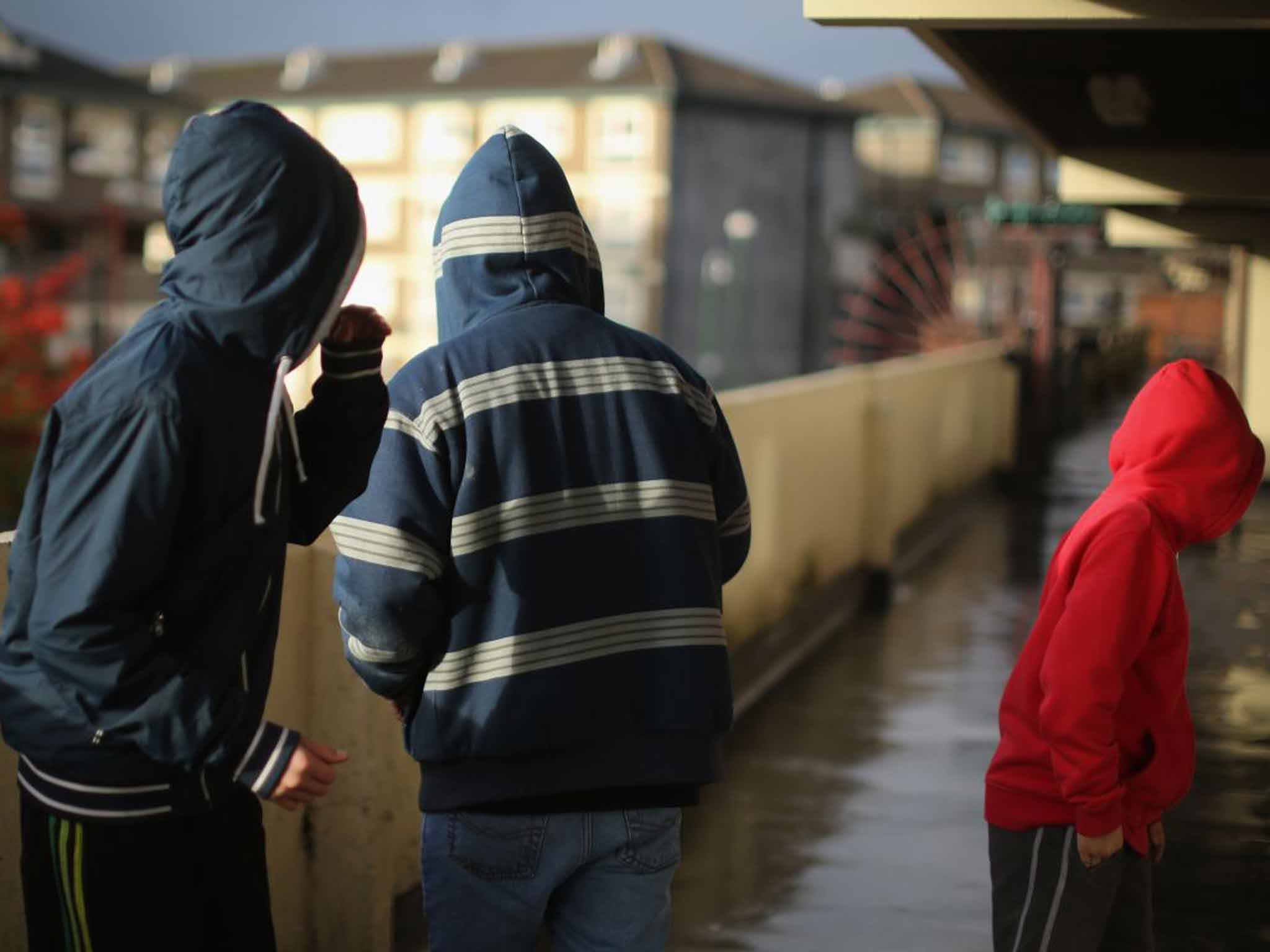Youth slang decoded: How to tell a 'durkboi' from a 'wasteman', bruv
Many of us are mysified by youth code but Tony Thorne, director of slang and new language at King's College, has cracked it

Your support helps us to tell the story
From reproductive rights to climate change to Big Tech, The Independent is on the ground when the story is developing. Whether it's investigating the financials of Elon Musk's pro-Trump PAC or producing our latest documentary, 'The A Word', which shines a light on the American women fighting for reproductive rights, we know how important it is to parse out the facts from the messaging.
At such a critical moment in US history, we need reporters on the ground. Your donation allows us to keep sending journalists to speak to both sides of the story.
The Independent is trusted by Americans across the entire political spectrum. And unlike many other quality news outlets, we choose not to lock Americans out of our reporting and analysis with paywalls. We believe quality journalism should be available to everyone, paid for by those who can afford it.
Your support makes all the difference.A defining characteristic of youth slang is thought to be its faddishness – the fact that terms have a rapid turnover, quickly coming in and out of fashion and then disappearing before parents and teachers have time to decode them. The reality is more complicated: novelty is all-important but for each generation the expressions will be new to them. So although each age group and almost every local clique do invent their own words, there is a common core of slang that persists for years: such as cool, wicked, solid and sick for good.
The new language used by the young is not one unified dialect but an intersection of styles, with vocabulary drawn from a number of sources. There is the edgy street language of gangs which has given us shank and jook for stab; and merk to hurt or humiliate. There is also boyed for shamed, durkboi and wallad for fool, dozens of terms for drugs and money and the greeting braap! picked up and used by innocent teens who may not have realised that it imitates the sound of an automatic firearm.
Many other words belong to MLE – multi-ethnic or cultural London English – sometimes derided as jafaican, the speech variety influenced by Caribbean usages and parodied by Ali G and TV comedy Phoneshop. Among the most pervasive are bruv, mate, bare, fam, gwop or peas (money), and chirpsin', linkin' and lipsin' – flirting, dating and kissing respectively.
Another component of the teen lexicon is the jargon of videogamers, origin of campet, an inert person (someone who “camps” on the fringes of the game); glicther, a cheat (a corruption of “glitch”), and zerg, to aggress (from the name of a race of hostile aliens).
US imports such as bae, sweetheart; (on) fleek, attractive; and turnt, excited or inebriated quickly, cross over from song lyrics, TV and movies into global English and are understood if not perhaps widely used. Homegrown expressions reflect teen habits of overstating: devs or devo'd for devastated (mildly inconvenienced); and feigning indifference – wotevs or whevs. Joining them are CBA or ceebs (“can't be arsed”) and the contemptuous meh and feh.
In fact, a large number of slang terms can be classified under relatively few headings. There are insults and terms of disapproval such as wasteman, gasman, neek (both nerd and geek) dinter and bell for males; and sket, THOT (that ho' over there) and meg (a dowdy introvert) for females. Supposedly ugly contemporaries are condemned as busted, finished, flames, hangin', bruk or just uggz. Gangs and cliques are often territorial, so terms such as endz, bitz, yard meaning neighbourhood, or road and roadboy, a local, are especially important.
A feature noted by some linguists is “hypersynonymy” whereby many competing coinages express the same notion. This can be seen in the dozens of words for good and bad and multiple synonyms for drunk or drugged, such as carnaged, wazzed, hamstered; and for exhausted: wreckaged, bonked, spanked and clappin'.
The many acronyms and abbreviations used online and in messaging have alarmed parents who can't interpret them and educators who think they are contaminating standard English. But texting is no longer fashionable and emojis are replacing txtspk, though it isn't likely to disappear completely, as evidenced by such recent additions as FOGO (fear of going out), SMH (shake my head), ICYMI (in case you missed it) and y/y? – an all-purpose tag like the French n'est-ce pas?, or a slightly more elegant innit?
So what will the next crop of slang terms be like? It's quite impossible to predict which expressions will catch on. What we can expect is that the most popular terms will come from the same categories as before: sex and dating, dissing and shaming, gushing and moaning and indulging covertly in illicit hedonism.
For the socially deprived, the use of street slang and ungrammatical codes could undermine their ability to manage the prestigious forms of language required in exams or job interviews. Most slang users, though, employ exotic terms and abbreviations sparingly and grasp what linguists call “appropriacy”, using the right language in the right context.
Knowing that “secret” codes and highly informal language exist in all cultures and given that studies show that those who use texting and emojis can be skilled communicators, adults should not despair. They could choose to find out more about language varieties which are not deficient at all but complex and creative. What they must not do is attempt to use them to “get down with the kids”.
This article was first published on The Conversation, www.theconversation.com
Update: This article originally said "smh" means "same here".
Join our commenting forum
Join thought-provoking conversations, follow other Independent readers and see their replies
0Comments